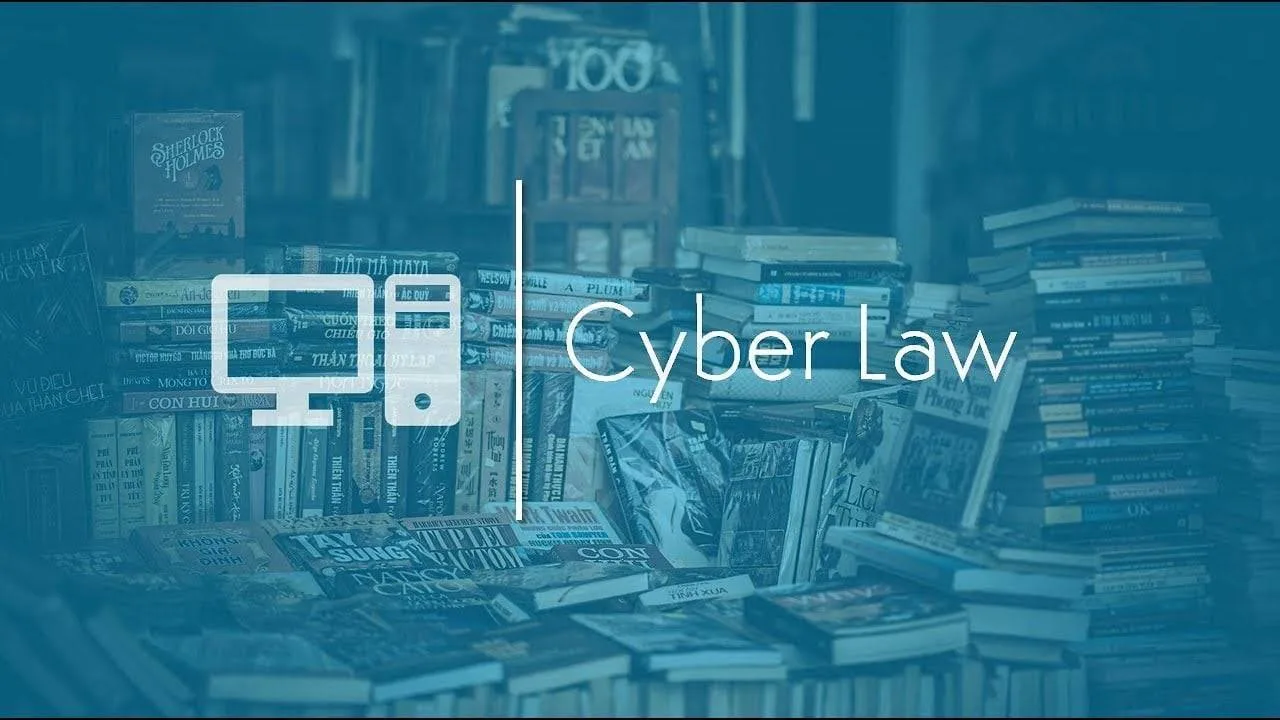Cyber law is an increasingly important branch of our legal system which deals exclusively with cyberspace, the Internet, and their related legal issues. In recent years, many cases have been brought against individuals and companies who have allegedly abused the freedoms of speech and expression on the Internet. Cyber law also covers a rather broad field, encompassing a number of other subtopics such as access to the Internet, privacy, and the freedom of expression. This branch of law was created in response to increasing concerns about computer crime and abuse, which were taking place online. Cyber criminals are also thought to be behind a large number of spamming and cyber attacks that are sending thousands of people to court houses every day.
The types of criminal laws that deal with cyberspace include federal and state laws, but the most common among these is probably the offense of identity theft. According to cyber law, any person who falsely makes any representation about another person, including a real person or a company, including the fact that the person exists or does not exist is considered to be involved in identity theft. Sometimes, the victim of such crime has even gone as far as to report the crime to the authorities, only to find that the culprits haven’t been caught. In these instances, the government can step in and help apprehend the criminals, using similar tactics used in regular criminal cases. In other cases, the government will use cyber law in order to go after the assets of those who have engaged in financial fraud.
There are many different ways in which cyber law can be utilised by the government. One of these methods is in pursuing criminals who have used computers to commit crimes such as identity theft. Many of these people have been able to successfully Dodge capture because they either used throwaway electronic devices, or used a network of proxy servers which helped them to hide their IP addresses. If you want to go after someone who is engaged in this kind of activity, you need to know what kinds of laws that govern this kind of activity so that you know whether your actions are covered by existing statues and laws, or whether there are new additions that may apply to your situation.
One of the most important things to know about cyber law is that it does not affect the normal functioning of your internet service provider’s security measures. Your ISP is an institution that were created for your own good, and it is up to you to keep it safe from any unauthorised access. Cyber-law, on the other hand, only affects the use of computers that are in the same physical location as the internet service provider. Any time someone uses your internet connection in ways that are considered to be unprofessional by your ISP, you could be held legally liable for the action. This means that if you are surfing the internet, playing online games, sending e-mail, or using chat rooms, you are being subjected to cyber law and may be held legally responsible for anything that is posted or transmitted through you using your internet service. This can include anything from a simple message to a pornography message, as well as anything that would be considered over the top or rude.
Types Of Cyber Laws Include
- Fraud
- Copyright
- Defamation
- Harassment and Stalking
- Freedom of Speech
- Trade Secrets
- Contracts and Employment
- Unauthorised Access
- Intellectual Property
- Internet Law
While the Internet has allowed many different types of businesses and activities to take place, it also has many critics, both professional and otherwise. One of the concerns of many people is the rising number of cyber crimes and the growing attitude that go along with them. There is a new area of legal field that is opening up in the area of cyber law, one that deals solely with the ways that people use the web and what they do when they do it. The legal field of cyber law may also deal with new technology that is introduced into the marketplace that is used to commit cyber crimes.
Another area of growing interest in the legal area of cyber law deals with hacking. Hacking is an act of taking control of another person’s computer systems without their permission, such as stealing information or engaging in illegal activity through a computer system. There are many new cyber laws on the books that deal with hacking and what specific legal actions businesses or individuals can be taken for actions that stem from hacking.
There are some grey areas in between cyber crime and cyber law, such as extortion. Extortion is an action that stems from the fear that someone may withhold something of value from one party in exchange for that “something” or service. There are many gray areas in between cyber crime and cyber law, but it is always a good idea to know what is covered under your particular jurisdiction. Cyber criminals are always evolving their methods of getting what they want, whether it is stealing financial data, intellectual property or causing widespread damage to a company’s reputation. It is essential that everyone stays vigilant and aware at all times and knows their exact legal boundaries so that they may properly deal with cyber criminals.
Internet Law
Internet law refers generally to the specialised legal issues concerned with the use of electronic means to promote the marketing of products and services online. More precisely, it is considerably less different from the general area of copyright law, trademarks, patents, and other such fields than is the Internet, where there are literally hundreds of specialised industries devoted exclusively to Internet activity. For example, there are web publishers, search engines, web content creators, online image galleries, advertisers, web design teams, commerce merchants, e-brokers, content locking entities, government agencies, and more. In short, there is an entire industry devoted to Internet activity, which is highly commercialised, as well as very difficult for outsiders to get a handle on. Consequently, when you want to take your product or service to a new level, you will need to be aware of all the potential legal problems that may arise along the way.
Cyber Crime
Cyber crime, also referred to as digital crimes, is a law designed to deal with the harmful use of computers, including the internet, computer software and hardware, and other networks. Cyber crime can be used to prosecute a range of offenses, including identity theft, fraud, terrorism, and copyright infringement. The United States Justice Department and other federal government agencies have taken steps to crack down on Internet piracy, cyber attacks, computer fraud, and other criminal activities. This criminal offense is increasingly being used in the fight against terrorism. Cyber law helps to protect citizens from danger by enabling the detection and prosecution of digitally undertaken criminal activity.
Computer Security
Computer security is a growing concern because it allows criminals to steal and use private information such as credit card numbers, social security numbers, bank account information, and user names and passwords. Prevention is the best defense against cyber crime. A variety of security tools and online security programs are available to help consumers safeguard their data against these attacks. Consumer computer security tools include anti-virus programs, firewalls, and software that block Trojans, worms, spyware, and other security threats. Many states are also passing bills that would require companies to provide comprehensive security tools and services to protect their computers and provide consumers with a choice of protective tools.
Criminals
The Internet, of course, has become one of the most popular ways for criminals to commit crimes. However, there are ways for the public and businesses to protect themselves from cyber criminals who may be lurking on the Internet. A variety of protective measures are available to help the public and businesses safeguard themselves against online Mastercard fraud, including preventing any online transactions that appear suspicious. Consumers can research online and purchase security tools that will prevent them from becoming a victim of this crime.
Breaking Cyber Laws
Breaking cyber laws, which can also be called Internet laws, is a serious offense. In the United States, laws regulating cyberspace behavior are referred to as cyber laws. This type of law is very different from other types of criminal law, since it addresses conduct that occurs in cyberspace, rather than on the ground in the real world. Although breaking the law carries serious penalties, Internet law enforcement is often considered a less aggressive form of enforcement than that of other types of enforcement, due largely to the fact that there are few physical ways for cyber law violations to occur.
If you have been accused of breaking one of these laws, you will need an lawyer experienced in Internet law enforcement. You may be able to get this kind of lawyer through a court-ordered counseling course, although many attorneys do not consider this a necessity. If you choose not to enroll in such a class, then you should seek an Internet lawyer who may be able to help you represent yourself at trial.
The biggest problem with breaking these laws is that the punishment is usually very serious. Many people have had to pay years in prison and have had to pay substantial fines for exposing companies’ private information. Additionally, you could be fired from your job or lose your children if you are found guilty of a cyber crme. So, if you’re not sure about whether or not you broke the law, you may want to consider consulting an experienced Internet lawyer before you decide what to do about the matter.







